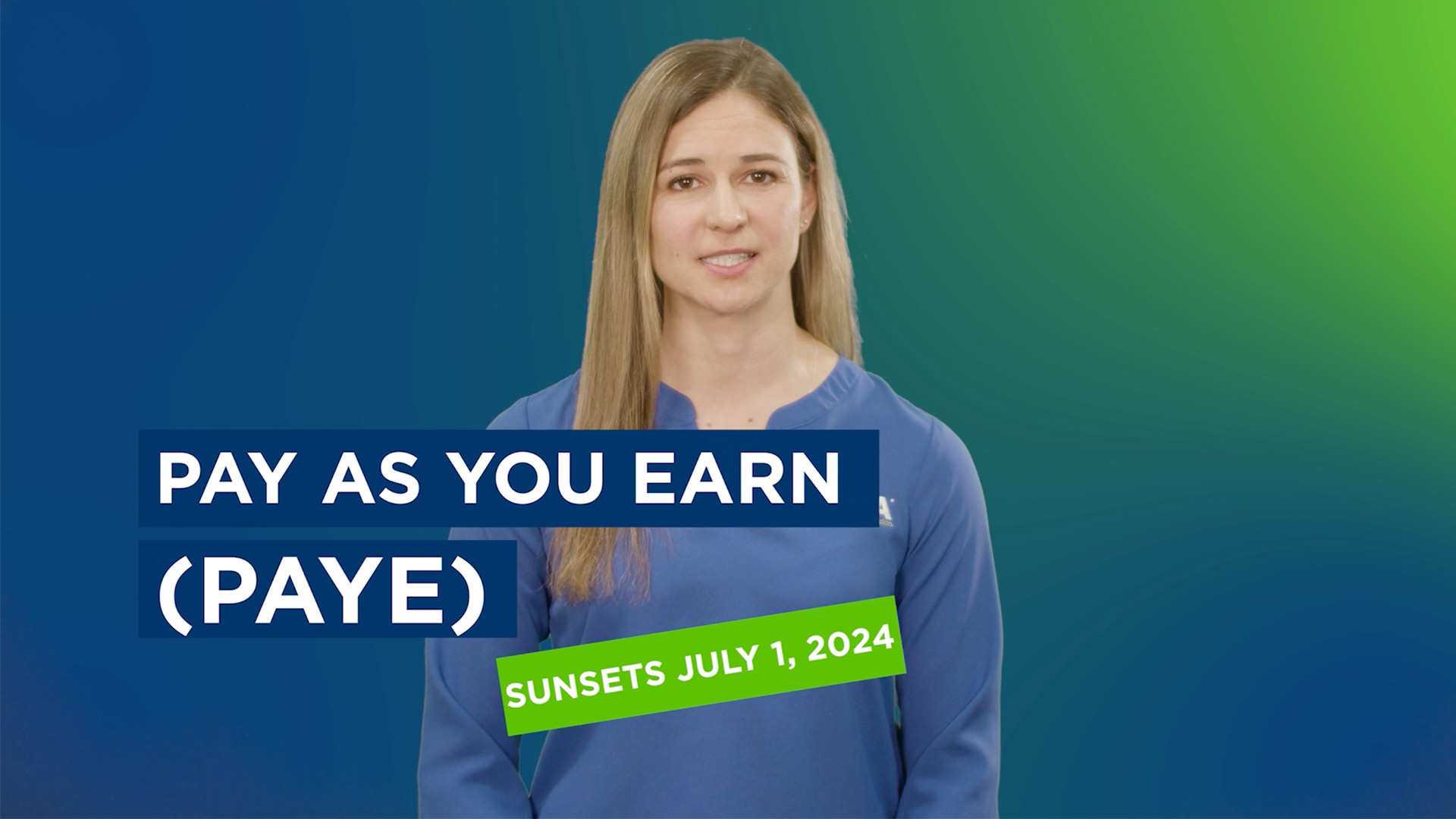Important Student Loan Deadline: What You Need to Know

The income-driven student loan repayment plan Pay As You Earn, or PAYE, will be sunset as of July 1, 2024.
Here's what you need to know
For veterinarians currently enrolled in PAYE, you don't have to do anything if you're happy with your plan. You can continue to use PAYE for the duration of your loans. If you're a new veterinary graduate or are considering a change, this short video has the information you need to understand what the July 1 deadline means to you.
The basics
The federal government's decision to sunset the PAYE program will affect veterinarians who might want to use an income-driven repayment plan (IDR) to pay off student debt. If you'd like to enroll in or switch to PAYE, you must do it before July 1, 2024. For newly graduating veterinarians, that means enrolling before the end of the 6-month repayment grace period.
How do you know if PAYE is the right plan for you?
The video outlines some questions you'll want to consider. First among them: Will you benefit from an income-driven repayment plan? They're typically best for people who can't afford the payments for a standard 10-year repayment plan. And they're only available for federal student loans.
If you've decided an income-driven plan is right for you, here are some key differences between PAYE and the newer Saving on a Valuable Education (SAVE) program:
- You might want to use PAYE because the repayment period is 20 years, compared with 25 for SAVE. This can make a big difference—especially if you expect that years 20-25 will be peak income years for you. Why? Because your monthly repayment amount with any income-driven repayment plan will be based on how much you're earning; the more you make, the higher your payment.
- With PAYE, you're guaranteed to never pay more per month than you would with a standard 10-year plan. This is an advantage if your debt is fairly low compared to your income.
- On the other hand, an advantage to SAVE is that it waives 100% of unpaid interest if your monthly payment isn't enough to cover all the interest you owe. This means your loan balance won't grow over time. It's especially helpful for people with high debt-to-income ratios.
Get expert advice
If this seems like a lot to think about, you're right. And there are other factors to consider as well, such as your personal and professional goals. The good news is: You don't have to navigate all of this on your own.
Student loan expert Paul Garrard provides a lot more information about PAYE, SAVE, and other aspects of repayment planning in these learning modules about loan repayment strategy.
You also can use the VIN Foundation Student Loan Simulator to explore your anticipated monthly payments and the total cost of different repayment options. They also offer free message board support.
Even with all these tools at your fingertips, it's a good idea to get advice from a qualified professional, such as a fiduciary financial planner. They can help you understand all your options and make an informed decision about your unique situation.